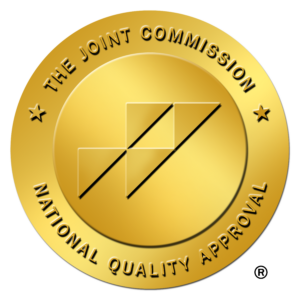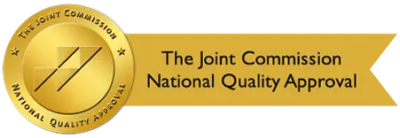Empowering Mothers with BPD: Strategies for Emotional Well-Being and Positive Parenting
Empowering Mothers with BPD: Strategies for Emotional Well-Being and Positive Parenting
Being a mother is a profound experience filled with challenges and rewards. For women with borderline personality disorder (BPD), this journey can be particularly complex. This comprehensive guide aims to shed light on the unique experiences of mothers living with BPD, providing insights, evidence-based strategies, and resources to foster healthy relationships within families.
Understanding the Intricacies of Borderline Personality Disorder (BPD)
BPD is a mental health condition characterized by intense emotions, impulsivity, and turbulent relationships. It can significantly affect a person’s self-image, behavior, and interactions with others. To understand the implications for mothers with BPD, it’s crucial to grasp the core features of this disorder.
Key Characteristics of BPD:
- Emotional Instability: Rapid and extreme mood swings, often triggered by seemingly minor events.
- Impulsivity: Engaging in risky behaviors without considering the consequences.
- Unstable Relationships: Intense and unstable relationships, marked by idealization and devaluation.
- Fear of Abandonment: An overwhelming fear of being rejected or abandoned by loved ones.
- Identity Disturbance: A persistent sense of emptiness or lack of a stable self-identity.
For further information on the diagnostic criteria and symptoms of BPD, you can visit the National Institute of Mental Health (NIMH) website.
Unique Parenting Challenges Faced by Women with BPD
Motherhood presents specific challenges for women with BPD, often stemming from the core features of the disorder.
These challenges can include:
Emotional Reactivity and Dysregulation: Difficulty managing intense emotions, which can lead to anger outbursts, anxiety, or depression, impacting their ability to respond consistently and calmly to their children.
Attachment Challenges: Struggles with forming secure attachments, potentially leading to inconsistent parenting styles, difficulty understanding their child’s needs, or overprotective behaviors.
Impulsivity and Unpredictability: Impulsive actions or decisions can create an unstable environment for children, leading to confusion and anxiety.
Relationship Struggles: The turbulent nature of BPD relationships can extend to the parent-child relationship, creating challenges in setting boundaries, communicating effectively, and maintaining healthy connections.
Research, such as “Parenting in mothers with borderline personality disorder and impact on child outcomes,” highlights the potential impact of BPD on parenting behaviors and child development.
Nurturing the Next Generation: Identifying Parenting Behaviors as Intervention Targets.
Studies like “Children of Mothers with Borderline Personality Disorder: Identifying Parenting Behaviors as Potential Targets for Intervention” have identified specific parenting behaviors that can be targeted for intervention.
These include:
Invalidating Emotions: Dismissing or minimizing a child’s feelings, leading to emotional distress and insecure attachment.
Harsh or Inconsistent Discipline: Using overly punitive or unpredictable disciplinary methods, which can create fear and anxiety in children.
Overprotection and Enmeshment: Difficulty allowing children to develop autonomy and independence, potentially leading to dependency and difficulty separating.
Role Reversal: Expecting children to fulfill emotional needs or take on responsibilities that are not age-appropriate.
By identifying and addressing these maladaptive parenting behaviors, mothers with BPD can learn healthier ways to interact with their children and foster their development.
The Ripple Effect: Understanding the Impact on Children
Children of mothers with BPD may experience a range of challenges due to their mother’s emotional instability and unpredictable behavior.
These challenges can include:
Emotional and Behavioral Problems: Children may develop anxiety, depression, or behavioral issues as a result of the unstable home environment and inconsistent parenting. Research suggests that children of mothers with BPD may have higher rates of internalizing and externalizing problems compared to their peers.
Insecure Attachment: Children may have difficulty forming secure attachments with their mothers, which can impact their emotional development and future relationships. They may exhibit anxious or avoidant attachment styles, leading to difficulties in trust and intimacy.
Increased Risk of Mental Health Issues: Children of mothers with BPD are at higher risk of developing mental health conditions themselves, including BPD, anxiety, and depression. This is due to a combination of genetic predisposition and environmental factors.
Building Bridges: Communication Strategies for Mothers with BPD
Effective communication is crucial for healthy parent-child relationships, but BPD can make it challenging.
Here are some tips for mothers with BPD to improve communication with their children:
Practice Active Listening
Give your child your full attention, make eye contact, and reflect back what you hear them saying.
Validate Emotions
Acknowledge your child’s feelings, even if you don’t understand them. Let them know it’s okay to feel what they’re feeling.
Use “I” Statements
Express your own feelings using “I” statements, rather than blaming or accusing your child.
Be Mindful
Be Mindful of Your Tone and Body Language. Your non-verbal cues can speak louder than words. Strive to maintain a calm and reassuring demeanor.
Avoid Impulsive Reactions
Take a moment to pause and reflect before responding to your child, especially during emotionally charged situations.
Apologize When Necessary
If you make a mistake or react poorly, apologize to your child. This models accountability and can strengthen your relationship.
Intergenerational Resilience: Effects of Growing Up with a Parent with BPD
Growing up with a parent with BPD can have a profound impact on a child’s development and well-being. Children may experience emotional instability, insecurity, and difficulties in relationships. However, it’s important to remember that not all children of parents with BPD will develop mental health issues. Resilience can be fostered through:
- Open Communication: Creating a safe space for children to express their feelings and concerns.
- Supportive Relationships: Having other supportive adults in their lives, such as grandparents, teachers, or mentors.
- Therapy: Individual or family therapy can provide children with the tools to cope with their parent’s BPD and develop healthy coping mechanisms.
Recognizing and Addressing Challenges: A Path to Healing
Recognizing the challenges faced by mothers with BPD and their children is the first step towards finding solutions and building healthier relationships. Here are some key strategies:
- Seek Professional Help: Both mothers and children can benefit from individual and family therapy.
- Develop Coping Skills: Mothers with BPD can learn to manage their emotions, improve communication, and develop healthier parenting practices.
- Build a Support Network: Connecting with other mothers with BPD can provide valuable support and understanding.
- Educate Yourself: Learn about BPD and its impact on parenting. This can help you better understand your own challenges and develop effective strategies for coping.
Nurturing Self and Family: Practical Tips for Mothers with BPD
In addition to therapy, here are some practical tips for mothers with BPD to navigate the challenges of parenting and create a more nurturing environment for their children:
- Prioritize Self-Care: Make time for yourself to engage in activities that promote relaxation and well-being, such as exercise, meditation, or spending time in nature.
- Develop Coping Skills: Learn and practice healthy coping mechanisms for managing emotional distress, such as mindfulness, deep breathing, or journaling.
- Establish Routines: Create consistent routines for yourself and your children to provide structure and predictability.
- Set Realistic Expectations: Avoid placing unrealistic expectations on yourself or your children. Celebrate small victories and be patient with yourself.
- Communicate Openly and Honestly: Talk to your children about your BPD in an age-appropriate way. Explain that you are working on managing your emotions and that you love them unconditionally.
- Build a Strong Support Network: Connect with other mothers with BPD through support groups or online communities. Having a supportive network can provide valuable insights and encouragement.
- Set Boundaries: It’s important for both you and your children to have clear boundaries. This helps create a sense of safety and predictability.
Supporting Your Family: Coping with BPD Together
Coping with BPD as a family requires understanding, communication, and support. Family members can help by:
- Educating Themselves: Learn about BPD, its symptoms, and its impact on family life.
- Providing Emotional Support: Offer love, encouragement, and understanding to the person with BPD.
- Encouraging Treatment: Help the person with BPD access professional help and support their treatment plan.
- Practicing Patience: Remember that BPD is a chronic condition that takes time and effort to manage.
Finding Support and Resources for Mothers with BPD
There are numerous resources available to support mothers with BPD and their families:
National Education Alliance for Borderline Personality Disorder (NEABPD): Provides information and resources on BPD, including treatment options and support groups.
The National Alliance on Mental Illness (NAMI): Offers support groups, educational programs, and resources for individuals and families affected by mental illness.
Verify Your Coverage Here
A Brighter Future: Embracing Hope and Healing
While mothers with BPD face real challenges, they also have immense potential for healing and growth. BPD is not a life sentence. With support, mothers can manage symptoms and build loving relationships with their children.
The road to recovery may be long, but it’s filled with hope. By prioritizing self-care, seeking help, and using effective coping mechanisms, mothers can create a nurturing environment.
Every step toward understanding and managing BPD is a step toward a brighter future. Embrace the journey, celebrate victories, and never lose hope.
You are strong, capable of love and healing, and worthy of a happy life.
"*" indicates required fields








